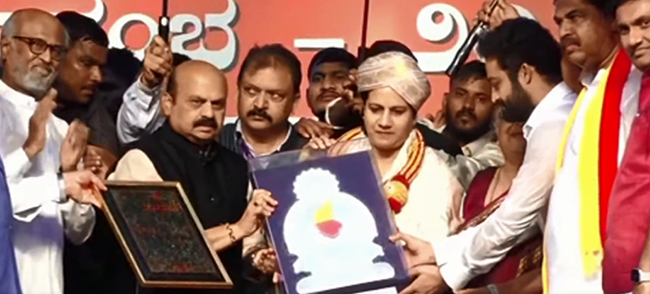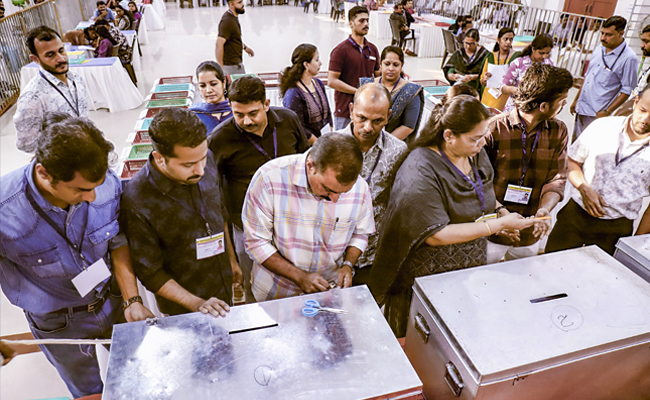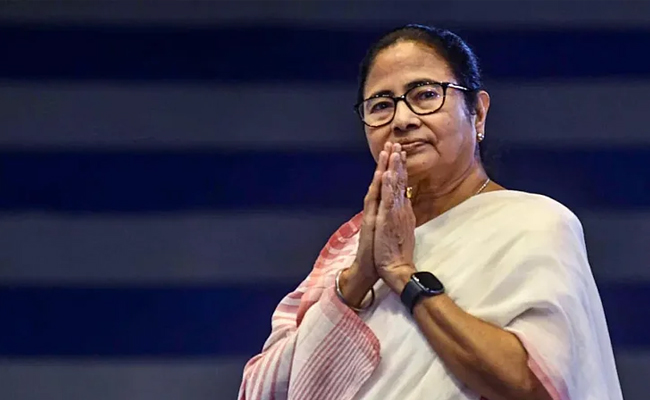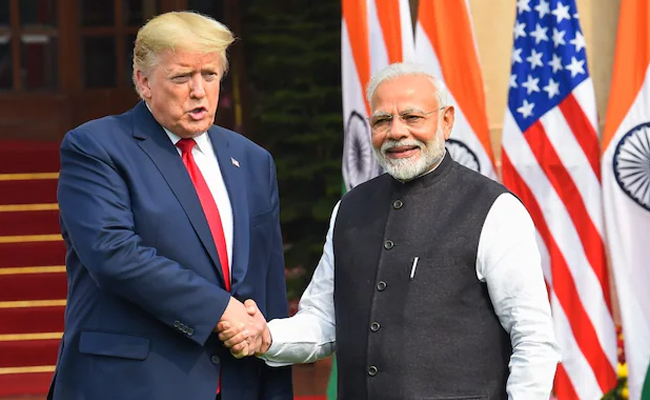Bengaluru, Nov 1: Karnataka's highest civilian award the 'Karnataka Ratna' was conferred posthumously on late actor Puneeth Rajkumar on Tuesday, on the occasion of the 67th Kannada Rajyotsava.
He is the 10th recipient of this prestigious honour.
The event on the foresteps of Vidhana Soudha, the seat of state legislature and secretariat here, was shortened and held in a hurried manner, due to sudden rains.
Cine actors Rajinikanth and Junior NTR, and Infosys Foundation Chairperson Sudha Murthy were guests at the event in which Chief Minister Basavaraj Bommai conferred Karnataka Ratna on Puneeth Rajkumar.
The Karnataka Ratna award consisting a full silver plaque and a 50 gram gold medal, was received by the late actor's wife Ashwini Puneeth Rajkumar, in the presence of his actor brother Shivarajkumar and other family members.
Several noted personalities from the film and literary world, Ministers, political leaders, legislators, among others are likely to be present at the event.
Ahead of the performances there was performance by several noted singers including Vijay Prakash.
With a large number of people descending at the venue, the Ambedkar Road in front of the Vidhana Soudha was jam-packed despite rains, and was closed for traffic. Commuters were advised to use alternate routes by the traffic police.
Considered the Kannada cinema's reigning star, Puneeth, youngest of five children of thespian and matinee idol Dr Rajkumar, had died of a cardiac arrest on October 29, 2021, at the age of 46.
Karnataka Ratna was last awarded to Dr. Virendra Heggade for social service in 2009.
Interestingly, Puneeth's late father Rajkumar is among the first recipients of Karnataka Ratna award in 1992, along with noted poet Kuvempu.
Other recipients of the award are S Nijalingappa (Politics), CNR Rao (Science), Devi Prasad Shetty (Medicine), Bhimsen Joshi (Music), Shivakumara Swamiji (Social Service), and Dr D Javaregowda (Education & Literature).
Puneeth, popularly known as 'Appu' and 'power star', by his fans, made his debut on screen when he was just six-months old and went on to win a national award as a child artiste for the film 'Bettada Hoovu'. He then re-emerged as a lead actor in 2002 and went on to star in 29 films, delivering some big hits.
Let the Truth be known. If you read VB and like VB, please be a VB Supporter and Help us deliver the Truth to one and all.
Thiruvananthapuram (PTI): Buoyed by the strong performance of the Congress-led UDF in the local body polls, KPCC president Sunny Joseph said on Saturday that the front's results indicated the people had rejected the LDF government.
According to early trends, the UDF was leading in more grama panchayats, block panchayats, municipalities and corporations than the LDF.
The local body polls were held in two phases in the state earlier this week.
ALSO READ: Cong candidate who moved Kerala HC for name reinstatement in voter list, wins
Speaking to reporters here, Joseph said the people of Kerala had extended their support to the UDF.
"We could expose the LDF government’s anti-people stance and the people understood it. The LDF’s fake propaganda was rejected by the people. The UDF is moving towards a historic victory," he said.
He said a united effort, proper preparations, good candidate selection and hard work had resulted in the Congress and the UDF’s victory in the elections.
Asked about the prospects in the Thiruvananthapuram Corporation, Joseph said the party was studying the matter and would comment later.
LDF convenor T P Ramakrishnan said the results would be closely examined.
According to him, the government had done everything possible for the people.
"Why such a verdict happened will be examined at the micro level. People’s opinion will be considered and further steps will be taken," he said.
He added that decisions would be taken after analysing the results. "If any corrective measures are required, we will initiate them and move forward," he said.
AICC leader K C Venugopal said the results showed that people had begun ousting those who, he alleged, were responsible for the loss of gold at Lord Ayyappa’s temple.
"This trend will continue in the Assembly elections as well. It is an indication that the people are ready to bring down the LDF government," he said.
Venugopal said the UDF had registered victories even in CPI(M) and LDF strongholds.
"I congratulate all UDF workers for their hard work. Congress workers and leaders worked unitedly," he said.
Referring to remarks made by Chief Minister Pinarayi Vijayan against the Congress on polling day, Venugopal said the voters had responded through the verdict.
"I do not know whether the chief minister understands that the people are against him. Otherwise, he does not know the sentiment of the people. The state government cannot move an inch further," he said.
He said the results indicated a strong comeback for the UDF in Kerala.
Asked whether the Sabarimala gold loss issue had affected the LDF in the local polls, Venugopal said the CM and the CPI(M) state secretary did not take the issue seriously.
"We took a strong stand on the matter. The BJP played a foul game in it," he alleged.
On the BJP's role in the local body elections, Venugopal alleged that the party operated with the CPI(M) 's tacit support.
"The CPI(M) supported the central government on issues such as PM-SHRI, labour codes and corruption in national highway construction. The CPI(M) is facing ideological decline, and the state government’s policies are against the party’s own decisions," he said.
Meanwhile, LDF ally Kerala Congress (M) leader Jose K Mani said the party could not win all the wards it had expected in the elections.
He congratulated winners from all parties and said the party would closely examine the losses and identify shortcomings. "Later, we will take corrective measures," he added.
Senior Congress leader and MP Rajmohan Unnithan said the trends in the local body elections indicated that the UDF would return to power in the 2026 Assembly elections.
"We will win 111 seats as in 1977 and return to power in 2026. The anti-government sentiment of the people is reflected in the elections," he said.
Unnithan said the people were disturbed and unhappy with the present government.
"The trend indicates the end of the LDF government," he added.
CPI(M) MLA M M Mani said the people had shown ingratitude towards the LDF despite benefiting from welfare schemes.
"After receiving all welfare schemes and living comfortably, people voted against us due to some temporary sentiments. Is that not ingratitude," he asked.
Mani said no such welfare initiatives had taken place in Kerala earlier.
"People are receiving pensions and have enough to eat. Even after getting all this, they voted against us. This is what can be called ingratitude," he said.
Muslim League state president Panakkad Sayyid Sadiq Ali Shihab Thangal said the results were beyond expectations.
"The outcome points towards the Secretariat in Thiruvananthapuram, indicating that a change of government is imminent. We are going to win the Assembly election," he said.





